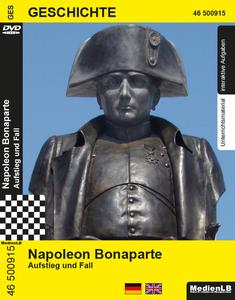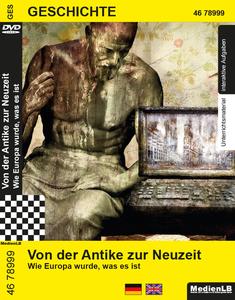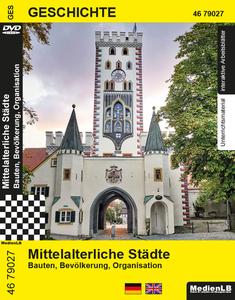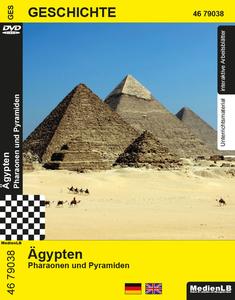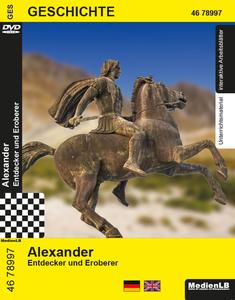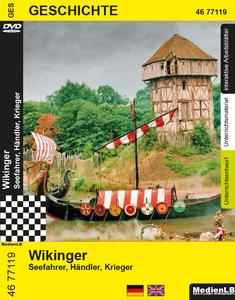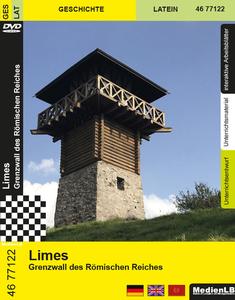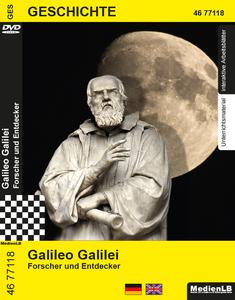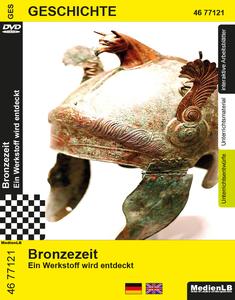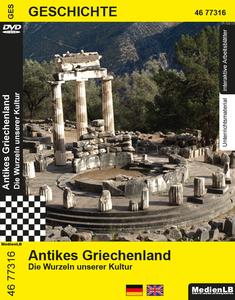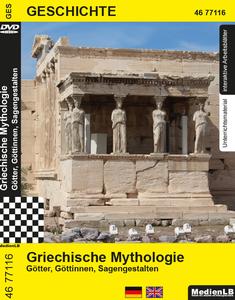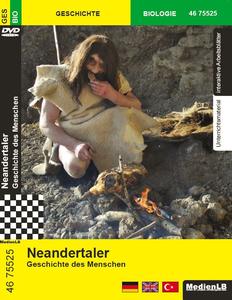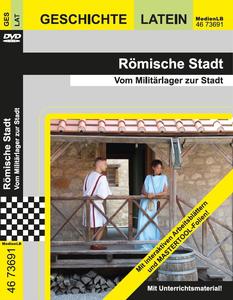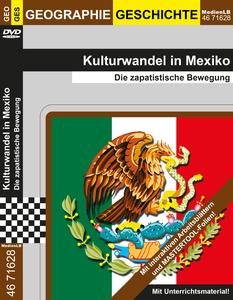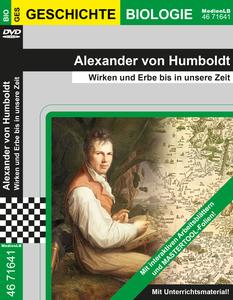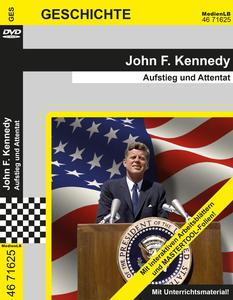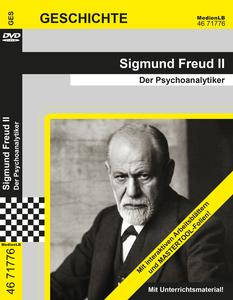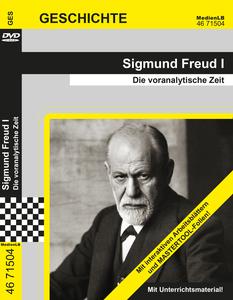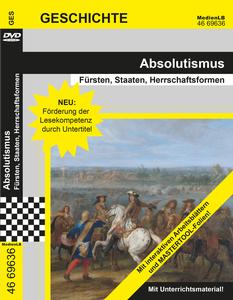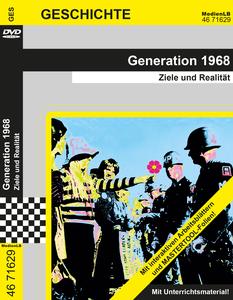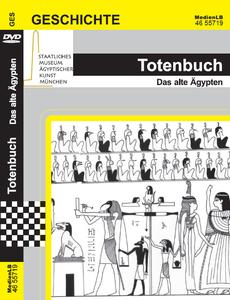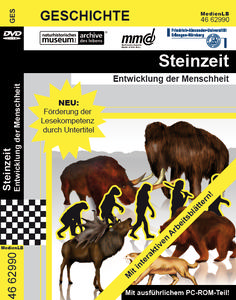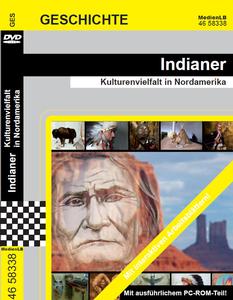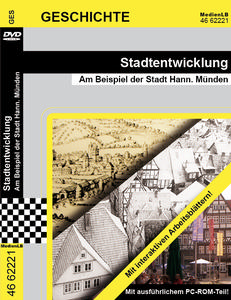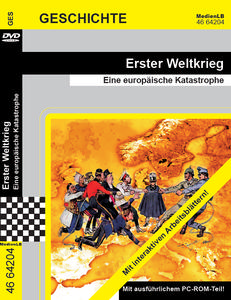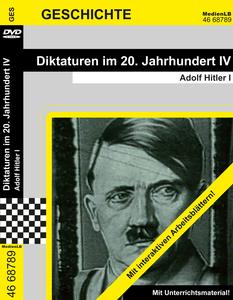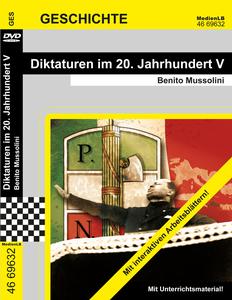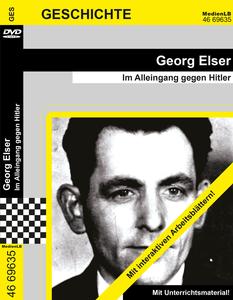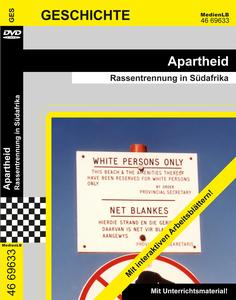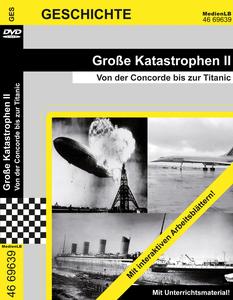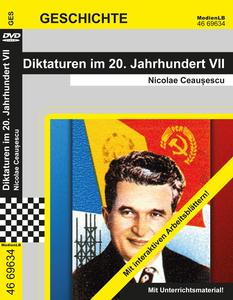-
Hansa
League of Towns and Economic Power
Since the 11th century the population in Europe was growing. The reason for it was, among other things, an increase in agricultural production due to a good climate.
More about the DVD -
Franks
Empire in the Early Middle Ages
The Franks presumably arose from various western Germanic tribes originally living between the Rhine and Weser rivers. In the beginning, they were not a unified tribe yet but consisted of several bands under their own leaders.
More about the DVD -
Celts
History and Culture
The term “Celts“ refers to a great number of different ethnic groups. So we do not speak of one “Celtic people”, at any rate not according to modern ethnic criteria, but rather of tribes within the circle of Celtic culture.
More about the DVD -
Napoleon Bonaparte
Rise and Fall
Napoleon Bonaparte shaped France and Europe like no other.
More about the DVD -
Thirty Years’ War
Causes, Development, Consequences
For thirty years war was waged in an area where Germany and Austria are located today.
More about the DVD -
Early Capitalism
Banking System and Founding of Dynasties
Today we live in a capitalist society. The economy is based on free competition and private ownership of capital.
More about the DVD -
From Antiquity to the Modern Era
How Europe Has Become What It Is Today
A lot of things we take for granted are actually the result of a long struggle. We live in a democracy and determine our government with elections.
More about the DVD -
Mediaeval Towns
Buildings, Population, Organisation
The mediaeval town was a fortified place where people lived who most of all engaged in commerce and trade.
More about the DVD -
Germanic Tribes
Beliefs, Everyday Life and Customs
When the Romans deliberately encountered the Germanic tribes in the 2nd century BC, they knew almost nothing about their soon-to-be most dangerous enemies and even today, much is still obscure as the Germanic tribes, unlike the Romans, did not leave behind large stone edifices but built their houses from wood – and this is ephemeral.
More about the DVD -
Egypt
Pharaohs and Pyramids
Roughly from 3100 to 322 BC, one of the greatest and most powerful cultures of antiquity flourished in the Nile Valley.
More about the DVD -
Rome
Traces of Ancient Heritage
In its heyday, ancient Rome was the most imposing city of the known world and centre of one of the largest empires of all times but most of the more than one million residents viewed the metropolis as a foul juggernaut.
More about the DVD -
Alexander
Explorer and Conqueror
Without doubt, after Alexander the Great, the world was not the same as before. During his reign of only elven years, he founded the largest world empire in the history of antiquity.
More about the DVD -
Vikings
Seafarers, Traders, Warriors
The Vikings – did not only raid monasteries mainly in England and Ireland, but pillaged and looted also along the coasts and rivers of Europe.
More about the DVD -
The Limes
Boundary Wall of the Roman Empire
The limes – the northern borderline of the Roman Empire stretched from Britannia to the Black Sea.
More about the DVD -
Galileo Galilei
Researcher and Explorer
Galileo Galilei, ingenious inventor and researcher whose findings changed the whole world.
More about the DVD -
Bronze Age
A New Material is Discovered
With the use of bronze as a working material a new historical era started at about 2200 BC. Why was this particular metal so important for the development of humankind?
More about the DVD -
Ancient Greece
Roots of Our Culture
The age of antiquity ended over a thousand years ago, and yet, it surrounds us almost every day. The Greek temples have been imitated over and over, and they represent masterly achievements of architecture even today – grandeur and beauty formed by stone.
More about the DVD -
Greek Mythology
Gods, Goddesses, Mythical Figures
The search for the origin and meaning of our existence has always been an integral part of the history of mankind.
More about the DVD -
The Weimar Republic
The First Democracy in Germany
In the heart of the federal state of Thuringia, there is the small town of Weimar, in which the cultural histories of Germany and Europe are blended together in a confined space.
More about the DVD -
Neanderthal Man
History of Mankind
For 250,000 years the Neanderthal dominated Europe during the last glacial period until he died out about 30,000 years ago.
More about the DVD -
Genocide of the Third Reich
Shoah
Germany, 14th July 1933: Six months after Hitler’s so-called rise to power all parties were banned with the exception of the National Socialist German Labour Party. Now the total forcible coordination of political life in Germany was completed. The new political model was based on the Führer cult, an emotional relationship between the Führer and the masses.
More about the DVD -
Europe
From Ancient Civilisations to the EU
We Europeans belong to many different countries with diverse cultures, languages and beliefs. These differences, as also our similarities, are based on history.
More about the DVD -
Roman City
From Military Camp to City
Augsburg, Cologne, Trier – well-known and important German cities. They have one thing in common: all of them were founded by the Romans.
More about the DVD -
Silicon Valley
Location for the IT and High-tech Industry
The famous Golden Gate Bridge runs across the San Francisco Bay into one of the most beautiful cities of America. And into one of the world’s richest regions. Around the bay, the headquarters of the leading global corporations of the digital era are located. The cable cars lend an air of nostalgia to the city with its hilly and winding streets. In the bay, the state-of-the-art companies of the world are successful. Here, everything is about bits and bytes, the Internet and social media.
More about the DVD -
Train to Auschwitz
Journey into the Past
»They had better look out… one day our patience will be at an end and then these impudent and hypocritical Jews will be reduced to silence.«
More about the DVD -
Men behind Hitler II
Himmler & Eichmann
They wanted to rule the world. They possessed weapons of seduction and violence ... and 50 million people lost their lives. ... Millions of civilians ... millions of soldiers. In the end, however, they were defeated.
More about the DVD -
Men behind Hitler I
Goering & Goebbels
They wanted to rule the world. They possessed weapons of seduction and violence ... and 50 million people lost their lives. ... Millions of civilians ... millions of soldiers. In the end, however, they were defeated.
More about the DVD -
Charles de Gaulle
The Last Great Statesman
Charles André Marie Joseph de Gaulle was born on 22nd November 1890 to a patriotic, Catholic family in Lille. His father, Henri de Gaulle, a professor for literature and history, had a strong influence on him. Young Charles received a solid classical education from the Jesuits and Augustinians and decided upon a military career.
More about the DVD -
Cultural Change in Mexico
The Zapatista Movement
31 federal states and the capital district of Mexico City form the United Mexican States. With an overall area of almost two million square kilometres, Mexico is the fifth-largest country on the two American continents. Globally, Mexico ranks eleventh with a population of roughly 110 million people.
More about the DVD -
Alexander von Humboldt
His Work and Legacy up to Our Time
The name of Alexander von Humboldt, who is considered the last polymath and is still admired as second discoverer in Latin America, is omnipresent. Schools, ships, mountains, rivers, squares are named after him; but above all animals and plants were given his name.
More about the DVD -
John F. Kennedy
Rise and Assassination
John F. Kennedy married the 34-year-old Jacqueline Bouvier. Now they have two children, Caroline, 5, and John-John, 2. The presidential aircraft Air Force One is flying over Texas in the direction of Dallas Airport. The State of Texas is traditionally a conservative Republican stronghold.
More about the DVD -
Sigmund Freud II
The Psychoanalyst
At the beginning of the year 1900, Freud lived in a scientific isolation that he himself referred to as a kind of “splendid isolation” that allowed his ideas to develop without interference.
More about the DVD -
Sigmund Freud I
Preanalytical Period
On 6th May 1856 Sigismund Schlomo Freud was born in Freiberg, a small town in Moravia. His parents, the forty-one year old Jewish wool merchant Kallamon Jacob Freud and Amalia, née Nathansohn, who was 20 years his junior, had seven more children together, and his father had two sons from previous marriages.
More about the DVD -
Rulers, States, Regimes
European State Formation between 1560 and 1789
About 150 years lie between the creation of these pictures: on the one hand, the absolute ruler of France Louis XIV, who reigned from 1643 to 1715 and on the other hand, George Danton and Maximilien Robespierre, two distinguished representatives of the French Revolution after 1789, who decided the fate of France.
More about the DVD -
Generation of 1968
Aims and Reality
The protest movements of 1968 were ignited all over the world – the existing order underwent a dramatic upheaval. Students and pupils of the entire world – no matter in which country, which culture – expressed their solidarity.
More about the DVD -
Labour Movement in Germany
1848 to 1914
In 1815, after the end of the Napoleonic wars, Europe reinvented itself. The Congress of Vienna created new states and changed a great number of borders. After the devastating war years, now a deceptive peace was reigning and people could focus on normal life again.
More about the DVD -
Battle of the Nations
War of Liberation against Napoleon
From 16th to 19th October 1813 the allies Austria, Prussia, Russia and Sweden inflicted the decisive defeat on the French army, thus breaking the supremacy of Napoleon over Europe.
More about the DVD -
Villa Rustica
Life in Former Times
Roman villa is fundamentally different from what we would regard as a villa in the modern sense. A Villa Rustica was a country estate with a mansion, large gardens and agricultural land.
More about the DVD -
The Egyptian Book of the Dead
Ancient Egypt
The notions described in the texts and pictures of the Book of the Dead are central to the ancient Egyptian belief in an afterlife – the belief in resurrection and life after death. In order to be granted passage to the “Realm of the Blessed”, the deceased first have to justify themselves before the Court of Death and give account that they have led their lives according to the laws of Maat – the order of the universe and justice.
More about the DVD -
The Holocaust Memorial
Stelae in Berlin
The film “A German Memorial – How to Commemorate Six Million Murdered Jews” gives an insight into the two concepts of this memorial – each deeply impressive in its very own way. This thirty-minute documentary takes the viewer on a virtual tour of the Field of Stelae and the Information Centre.
More about the DVD -
Ways to Democracy
From the 19th Century to the Present
This film shows the most important stages on the way to the development of democracy in Germany.
More about the DVD -
Remembrance or Oblivion
Concentration Camp Mühldorfer Har
The DVD provides an overview of the setting up of the concentration camps in the vicinity of Mühldorf on the Inn. Thousands of prisoners worked there from 1944 up to the end of World War II, building an arms bunker.
More about the DVD -
Industrialization
Working Class Life in the Ruhr Valley
This DVD treats the different working and living conditions of people in the Ruhr valley around the year 1900 and refers to the thesis of the sociologist Li Fischer-Eckert. She conducted interviews with working class women on their living conditions in the workers’ housing estates in 1911 and 1912.
More about the DVD -
The Border
An Inter-German Conflict Zone
The DVD helps students, who have no first-hand recollection of the partition of Germany, to approach this problem. The film illustrates the historical development of the inner- German border from 1945 to 1989.
More about the DVD -
Genghis Khan
The Horsemen of the Apocalypse
They appeared all of a sudden, as if from nowhere. Wild Mongol hordes on horseback overrun the Asian Steppes and Russian expanses at the beginning of the 13th century. Nobody can hold up their triumphal march.
More about the DVD -
Stone Age
Evolution of Mankind
About 2,606,000 years ago, that is 52,120 generations before us, the first and at the same time longest period of human history began - the Stone Age. The film provides an overview of life during the Palaeolithic, the Mesolithic and the Neolithic. We get to know the various decades and the typical human ways of life resulting from them.
More about the DVD -
American Indians
Cultural Diversity in North America
Who were the first people in America? The native inhabitants of this continent are called Indians, and they are just as diverse as the peoples in Europe. North America is divided into Nine Native American Culture Regions and the film goes into detail about the Indians of the north-eastern and south-eastern Woodlands, the Indians of the Southwest and the Plains Indians.
More about the DVD -
Urban Development
Illustrated by the Example of Hann. Münden
The film provides an insight into the topic of urban development. In such a process, many factors work together: for example geographic location, economic opportunities and citizens' prosperity.
More about the DVD -
Dictatorships in the 20th Century I
Communism under Mao
Mao Zedong or Mao Tse-tung, founder of the People’s Republic of China, wanted to enter history as the “Great Helmsman“ who led his country into a new and better era by means of rigorous socialist transformations in economy, culture and society. But his rule was marked by terror, violence and despotism.
More about the DVD -
First World War
A European Catastrophe
Double-DVD: First World War – A European Catastrophe Even though countless armed conflicts had shaken mankind in the course of its history, it was the First World War that surpassed with its 17 million casualties and immense damage anything that had ever been experienced before.
More about the DVD -
Dictatorships in the 20th Century II
Stalin
Double-DVD: Nobody could trust his colleagues, his friends, even his own family any more. An entire nation was brutally oppressed, spied out and exposed to any conceivable form of despotism. Until Joseph Stalin died on 5th March 1953, these facts were the bitter reality of the Soviet citizens’ everyday life.
More about the DVD -
Dictatorships in the 20th Century III
Fidel Castro
Today, the Caribbean island state of Cuba is an independent republic. Cuba was first ruled by the Spanish and later by the USA before the island gained its independence under Fidel Castro in the 20th century. He grew up in privileged conditions but already while studying law he engaged in political activity.
More about the DVD -
Dictatorships in the 20th Century IV
Adolf Hitler
Within just a few years, Adolf Hitler succeeds in transforming the young democracy of the Weimar Republic into a dictatorship. With sophisticated propaganda he got millions of German citizens to vote for him. He achieved dictatorship and started the 1st World War – driven by his anti-Semitic ideas and the vision of making Germany the ruler of the world. This film provides information on Hitler as a person.
More about the DVD -
Second World War I
War of the Great Powers
When, on 1st September 1939, the German Wehrmacht unleashed the Second World War with the attack on Poland, nobody could have visualised what immense suffering and gigantic destruction would descend on mankind during the following six years.
More about the DVD -
Ernesto Che Guevara
Utopian and Revolutionary
Che Guevara is the revolutionary fighter of the 20th century. His famous portrait can be seen everywhere on posters and T shirts. But who was Che Guevara? How did Ernesto Guevara de la Serna become the best-known revolutionist of contemporary history? Che is born in Rosario in Argentina as the son of a modern, educated couple. He attends high school and subsequently studies medicine.
More about the DVD -
Dictatorships in the 20th Century V
Benito Mussolini
Benito Mussolini is born in1883 in the Romagna, a region of farmers and labourers, and grows up in an Italy where the economic crisis determines people’s lives. This leads to mass emigrations in the south and also in the better developed areas of the north, the situation escalates.
More about the DVD -
Martin Luther King
“I didn’t want to just look on“
Martin Luther King, born and raised in the household of a pastor, was one of the privileged blacks. He saw and experienced the injustice of social oppression and racism, which were particularly pronounced in the Southern States of the USA, and some of which are still lingering today. He called for demonstrations and civil disobedience and became the spokesman for the Civil Rights Movement of the USA: ”But we refuse to believe that the bank of justice is bankrupt.“
More about the DVD -
Dictatorships in the 20th Century VI
Francisco Franco
Francisco Paulino Hermenegildo Teódulo Franco y Bahamonde Salgado Pardo is born in El Ferrol (Galicia) on 4th December 1892.
More about the DVD -
Georg Elser
Alone against Hitler
Who is this boy who almost killed Hitler later in his life?
More about the DVD -
Apartheid
Racial Segregation in South Africa
A new era began for South Africa when, in 1886, an out-of-work miner struck gold at the Witwatersrand in South Africa. The consequences of the discovery of the world’s largest natural treasure were dramatic.
More about the DVD -
Great Disasters I
From Attack to Industrial Accident
A disaster occurs when the balance inherent in a certain phenomenon is disturbed.
More about the DVD -
Great Disasters II
From Concorde to Titanic
A disaster occurs when the balance inherent in a particular phenomenon is disturbed.
More about the DVD -
Dictatorships in the 20th Century VII
Nicolae Ceaușescu
Nicolae Ceausescu ruled Romania for twenty-four long years and was a dictator. The General Secretary of the Romanian Communist Party enjoyed, apart from the recognition of his own compatriots, great popularity in Western countries.
More about the DVD



















